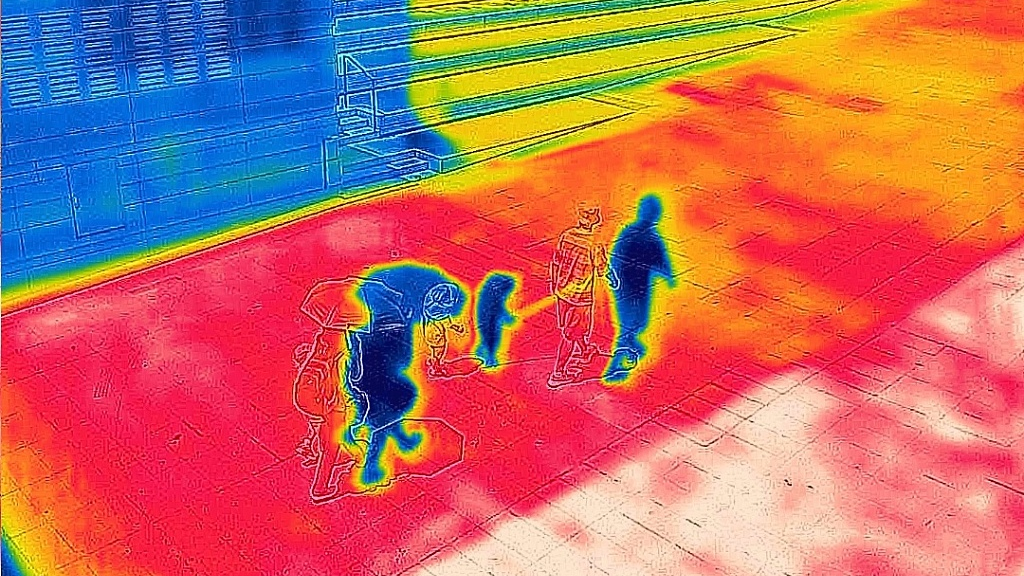
Firemen attempt to extinguish a fire in Nea Anchialos, Greece, July 27, 2023. /CFP
Firemen attempt to extinguish a fire in Nea Anchialos, Greece, July 27, 2023. /CFP
July 2023 was hotter than any other month in the global temperature record since 1880, according to NASA's Goddard Institute for Space Studies (GISS) on Monday.
"This July was not just warmer than any previous July – it was the warmest month in our record, which goes back to 1880," said Gavin Schmidt, director at the GISS. "The science is clear this isn't normal."
According to the agency's data, July was 0.24 degrees Celsius warmer than any other July in record and 1.18 degrees Celsius warmer than the average July temperature between 1951 and 1980.
Moreover, the five hottest Julys ever have all happened in the past five years.
Parts of South America, North Africa, North America and the Antarctic Peninsula were especially hot, experiencing temperature increases of about four degrees Celsius above average.
Tens of millions of people were under heat warnings because of the extreme heat this summer, causing hundreds of heat-related illnesses and deaths, it said.

Captured by a thermal imaging camera, the image displays citizens walking through Gwanghwamun Square in Seoul, South Korea, July 30, 2023. /CFP
Captured by a thermal imaging camera, the image displays citizens walking through Gwanghwamun Square in Seoul, South Korea, July 30, 2023. /CFP
NASA data showed that high sea surface temperatures contributed to July's record warmth, especially warm ocean temperatures in the eastern tropical Pacific, where evidence of the El Nino began developing in May 2023.
The agency predicted that the biggest impacts of El Nino phenomenon will be seen in February, March, and April 2024.
"Alarming warming around the world is driven primarily by human-caused greenhouse gas emissions," said Gavin.
The agency said that its temperature record was assembled from surface air temperature data from tens of thousands of metrological stations, as well as sea surface temperature data acquired by ship- and buoy-based instruments.
This raw data is analyzed using methods that account for the varied spacing of temperature stations around the globe and for urban heating effects that could skew the calculations.